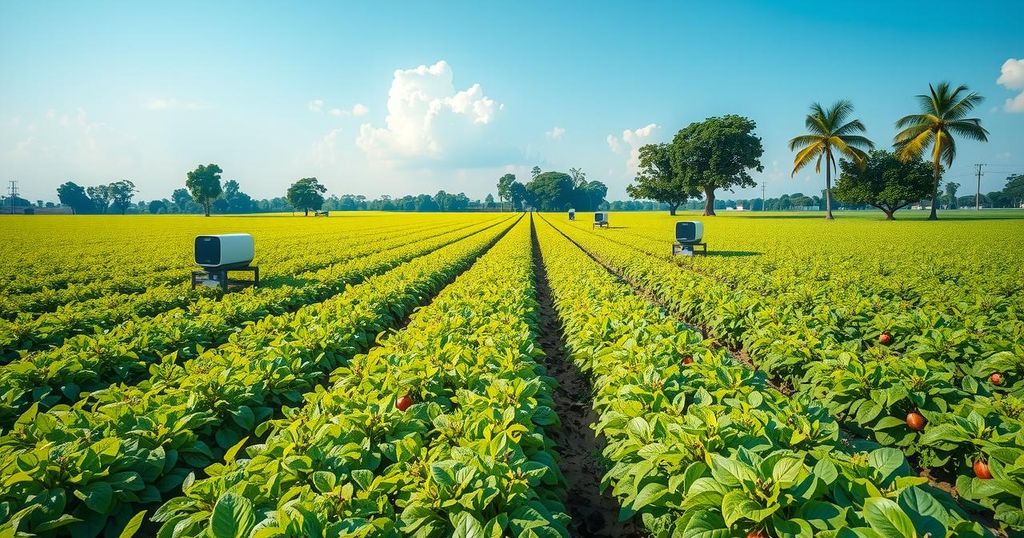AI Transforms Agriculture in Nigeria: A Lifeline for Struggling Farmers
Nigerian farmers are utilizing artificial intelligence to boost agricultural productivity amid climate change challenges. Innovations by companies like Green Eden demonstrate significant improvements, with individual farmers reporting enhanced yields. However, critics caution that addressing environmental issues and ensuring wide access to such technologies are also critical for sustainable agricultural growth.
In Nigeria, farmers like Dandam Nangor, 34, are leveraging artificial intelligence to enhance agricultural productivity. With the use of mobile technology, Mr. Nangor can monitor greenhouse conditions, such as temperature and soil acidity. This innovative approach, supported by agri-tech companies like Green Eden, has reportedly increased his pepper production by about 20%. The agricultural sector remains crucial, contributing approximately 20% to Nigeria’s GDP.
As smallholders struggle against climate change and erratic rainfall, solutions like those provided by Green Eden aim to address these pressing challenges. Stephanie Meltus, founder of Green Eden, emphasized that climate change poses significant risks to farmers, saying, “That was the simple problem, the weather. Climate change. That is what we are trying to solve.”
The agri-tech scene in Nigeria is growing, especially in cities like Jos, where start-ups are creating innovative monitoring systems for diverse farming operations, including poultry. Mercy Atsuku, a chicken farmer, noted a marked improvement in her flock’s health since implementing a monitoring system from another local start-up, Anatsor. These technologies notify farmers about critical conditions such as temperature and water quality.
Despite potential benefits, there are concerns surrounding the agri-tech innovations. Critics highlight that while technology may enhance productivity, it could do little to address broader challenges like land degradation and infrastructure deficiencies. Additionally, only 40% of the Nigerian population has Internet access, particularly limiting in rural areas, which could hinder the adoption of these promising agricultural technologies.
The incorporation of artificial intelligence in Nigerian agriculture is presenting new opportunities for farmers to adapt to the challenges posed by climate change. As technology bridges the gap between urban innovation and rural agriculture, it remains essential to address the underlying issues faced by the farming community. Overall, while advancements in agri-tech hold promise, achieving sustainable agricultural practices requires a balanced focus on both increasing output and minimizing environmental impact.
Original Source: www.thehindu.com




Post Comment